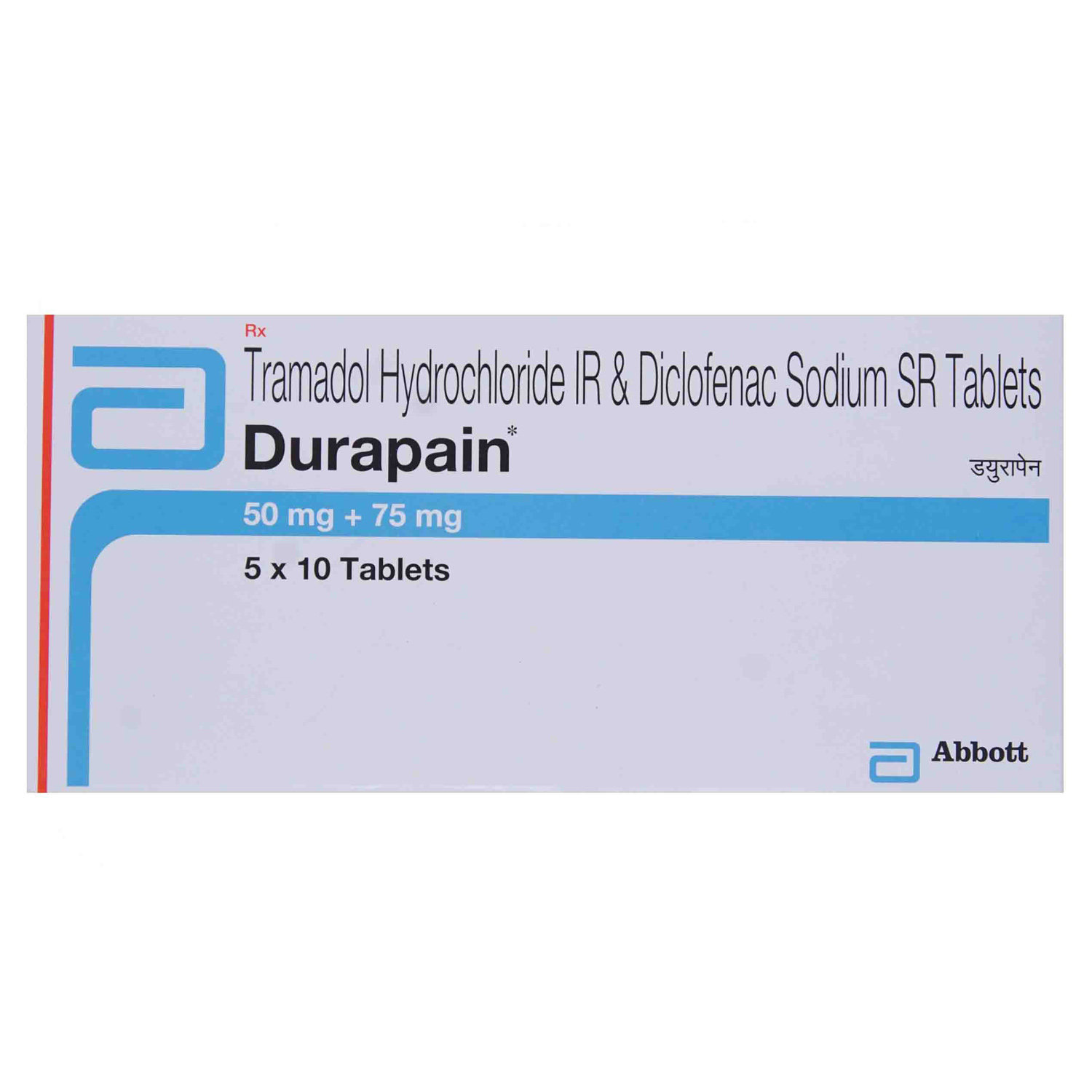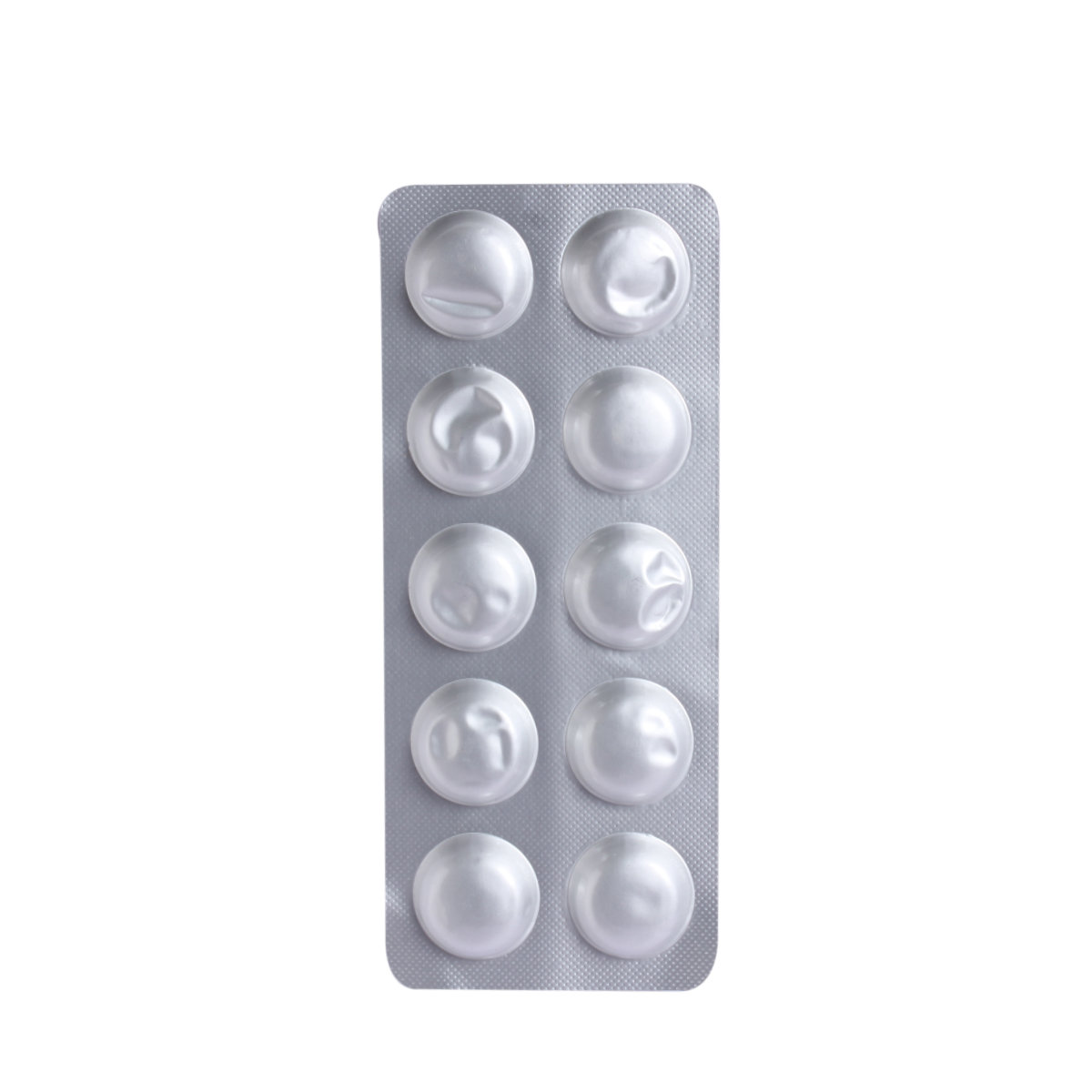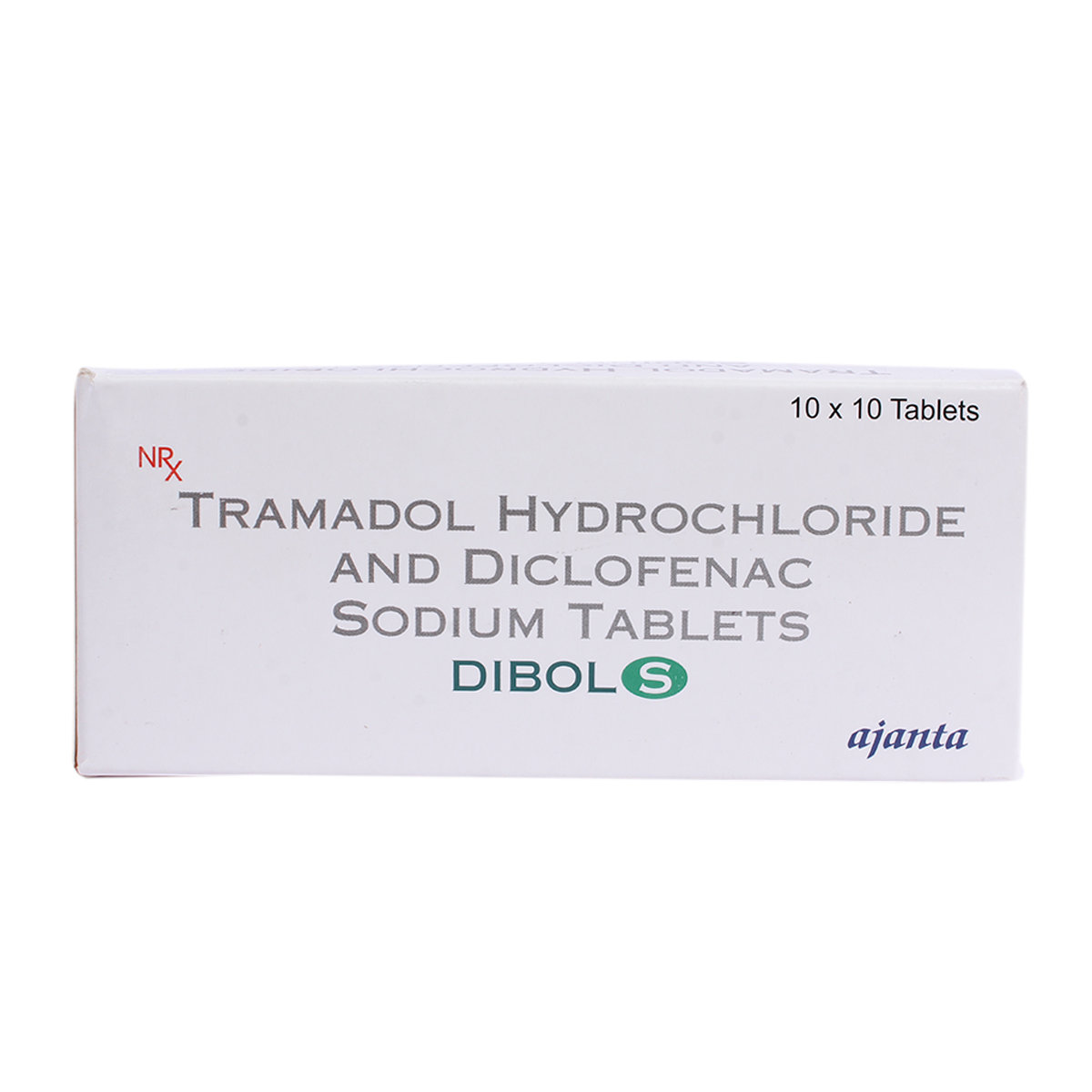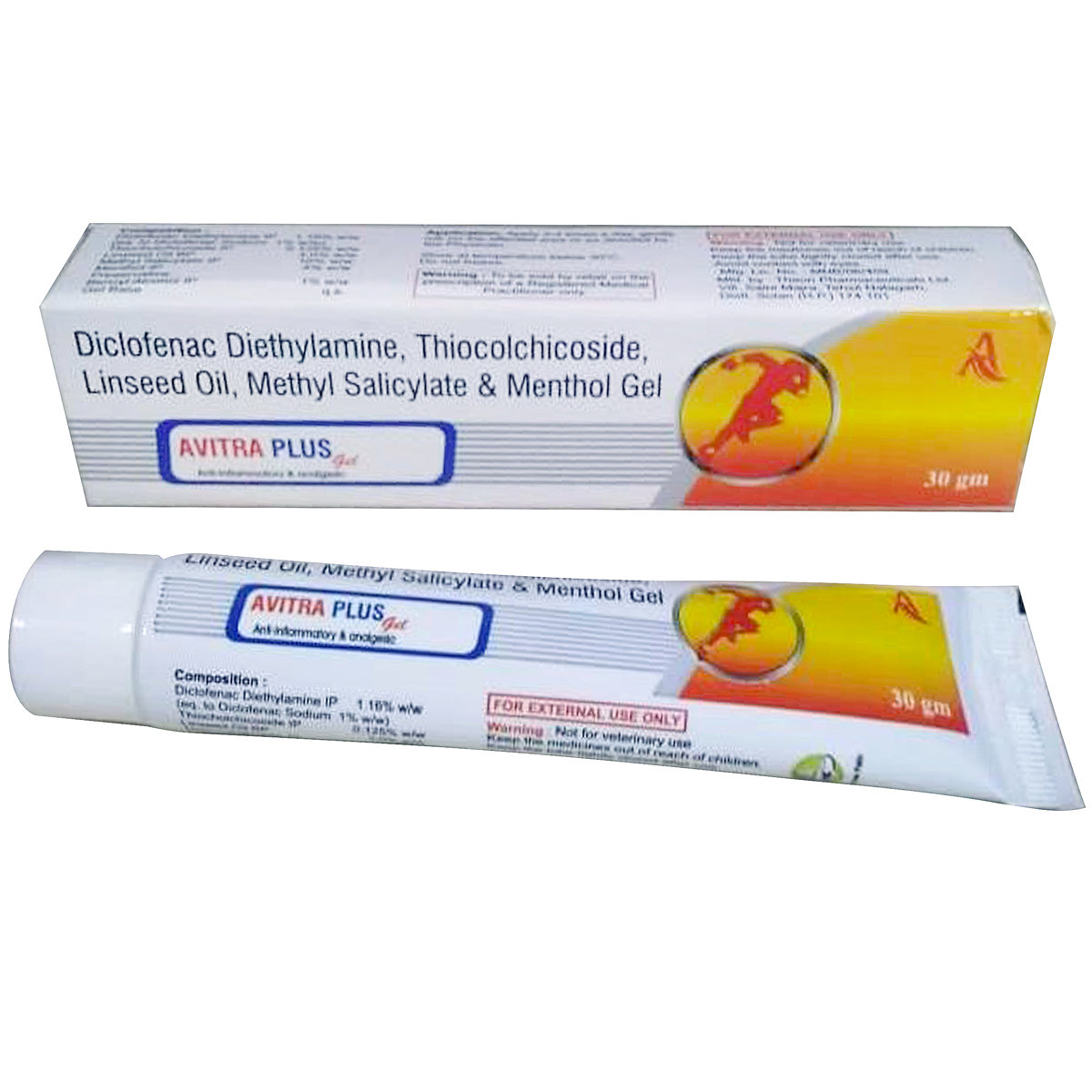Diclofenac+tramadol
About Diclofenac+tramadol
Diclofenac+tramadol belongs to the group of medicines called painkillers, primarily used to get relief from pain and inflammation (redness and swelling). Pain is an unpleasant sensation and emotional experience that is associated with tissue damage. It allows the body to react and prevent further tissue damage. Pain can be short-term (acute) or long-term (chronic). Perception of pain can differ from person to person where from tolerable to non-tolerable.
Diclofenac+tramadol contains Diclofenac (non-steroidal anti-inflammatory drug (NSAID) and Tramadol (an opioid). Diclofenac works by blocking the release of chemical messengers, which are responsible for causing pain and inflammation. On the other hand, Tramadol blocks the transmission of pain signals to the brain, and as a result, pain perception is lowered.
Take Diclofenac+tramadol as prescribed by your doctor. You are advised to take Diclofenac+tramadol for as long as your doctor has prescribed it for you, depending upon your medical condition. The most common side effects of Diclofenac+tramadol are nausea, loss of appetite, vomiting, dizziness, indigestion, sleepiness, constipation, heartburn, stomach pain, and dryness in the mouth. Most of these side effects of Diclofenac+tramadol are temporary, do not require medical attention, and gradually resolve over time. However, if the side effects are persistent, reach out to your doctor.
Do not take Diclofenac+tramadol if you are allergic to NSAIDs, diclofenac, tramadol, or any of the ingredients of Diclofenac+tramadol. Consumption of alcohol should be avoided during the treatment with Diclofenac+tramadol as it may lead to an increased risk of liver damage and stomach bleeding. Patients with stomach ulcers, gastric bleeding, severe heart failure, high blood pressure, and liver or kidney disease should not take Diclofenac+tramadol. Diclofenac+tramadol contains diclofenac, a category D pregnancy drug, so it is not recommended that you take Diclofenac+tramadol during pregnancy as it may cause fetal deformities.
Uses of Diclofenac+tramadol
Medicinal Benefits
Diclofenac+tramadol is used to treat aches and pains, along with problems of musculoskeletal and joint pain. It is helpful in the conditions of rheumatoid arthritis, ankylosing spondylitis, and osteoarthritis. In addition to this, it is also used as a short-term treatment for muscle and back pain, pain in the throat or ear, and toothache. Diclofenac+tramadol contains Diclofenac (non-steroidal anti-inflammatory drug (NSAID)) and Tramadol (an opioid). Diclofenac works by blocking the release of chemical messengers, which are responsible for causing pain and inflammation. Tramadol, on the other hand, blocks the transmission of pain signals to the brain. As a result, pain perception is lowered, and hence the quality of life is improved.
Directions for Use
Storage
Side Effects of Diclofenac+tramadol
- Nausea
- Vomiting
- Dryness in mouth
- Indigestion
- Constipation
- Sleepiness
- Heartburn
- Stomach pain
- Dizziness
- Loss of appetite
Drug Warnings
Do not take Diclofenac+tramadol if you are allergic to NSAIDs, diclofenac, tramadol, or any of the ingredients of Diclofenac+tramadol. Consumption of alcohol should be avoided during the treatment with Diclofenac+tramadol as it may lead to increased risk of liver damage. Patients with stomach ulcers, gastric bleeding, severe heart failure, high blood pressure, and liver or kidney disease should not take Diclofenac+tramadol. Diclofenac+tramadol contains diclofenac, a category D pregnancy drug, so it is not recommended that you take Diclofenac+tramadol during pregnancy as it may cause fetal deformities. While Diclofenac+tramadol may pass in the lactating mother's breast milk, there is not enough evidence to establish the safety of Diclofenac+tramadol in nursing mothers. So, it is advisable to take it only if prescribed by your doctor. If you have a severe allergy to painkillers and have conditions like asthma, rhinitis, angioedema (swelling under the skin), or skin rashes, immediately stop taking Diclofenac+tramadol.
Drug Interactions
Drug-Drug Interactions: Diclofenac+tramadol is known to interact with painkillers (nimesulide, oxyphenbutazone), blood clotting agents (warfarin), blood pressure-lowering agents (hydrochlorothiazide), medicines for depression (lithium), antifungals (itraconazole, voriconazole), benzodiazepines (alprazolam, diazepam, estazolam, flurazepam, lorazepam, triazolam), antibiotics (erythromycin), HIV medications (indinavir, nelfinavir, ritonavir) and medicines used to treat abnormal heart rhythms (quinidine).
Drug-Food Interactions: Diclofenac+tramadol should not be taken along with St. John's Wort plant (a natural remedy to treat depression).
Drug-Disease Interactions: People with peptic ulcers, gastric bleeding, severe heart failure, diarrhoea and high blood pressure should avoid intake of Diclofenac+tramadol as it may lead to life-threatening conditions.
Drug-Drug Interactions Checker List:
Safety Advice

Alcohol
unsafeYou are recommended not to consume alcohol along with Diclofenac+tramadol to avoid unpleasant side-effects like gastric bleeding.

Pregnancy
unsafeDiclofenac+tramadol is not recommended for use in pregnant women.

Breast Feeding
unsafeWhile Diclofenac+tramadol may pass in the lactating mother's breast milk, there is not enough evidence to establish the safety of Diclofenac+tramadol in nursing mothers. So, do it is advisable to take it only if prescribed by your doctor.

Driving
cautionIn some cases, Diclofenac+tramadol may cause dizziness and drowsiness. So if you observe such symptoms, immediately stop the intake of Diclofenac+tramadol.

Liver
cautionDiclofenac+tramadol should be used with caution in patients with liver diseases. Therefore, the doctor may adjust the dose while using it in patients with liver diseases.

Kidney
cautionLet your doctor know if you have any history of kidney diseases. Your doctor will weigh the benefits and potential risks before prescribing Diclofenac+tramadol.

Children
cautionDiclofenac+tramadol should not be given to children below the age of 18 as it is known to cause breathing problems (like slow breathing or difficulty in breathing)
Habit Forming
Diet & Lifestyle Advise
- Include more glucosamine, chondroitin sulphate, vitamin D, and calcium-enriched supplements. Besides this, turmeric and fish oils can help in reducing inflammation in the tissue.
- Please do not go for heavy exercise as it may increase your joint pain in arthritis. Instead, you can do stretching, and low-impact aerobic exercises like walking on a treadmill, bike riding, and swimming. You can also strengthen your muscle strength by lifting light weights.
- In a chronic condition of arthritis or joint pain, including fish like salmon, trout, tuna and sardines. These fishes are enriched with omega-3 fatty acids that minimize cytokine's levels, which ramp up inflammation.
- Your sitting posture is important, especially when you have pain and inflammation conditions. Try to sit as little as possible and only for a short time (10-15 min). Use back support like a rolled-up towel at the back of your curve to minimize pain. Keep your knees and hips at a right angle. Besides this, you can use a footrest if required.
Special Advise
- Diclofenac+tramadol tends to cause stomach upset. Thus, it is recommended to consume Diclofenac+tramadol with meals to minimize gastric side effects. If you have a peptic ulcer diagnosis, Diclofenac+tramadol is best avoided unless prescribed by your doctor.
- Diclofenac+tramadol can cause liver injury when taken in large doses. Concomitant use of alcohol is best avoided as it aggravates liver toxicity.
- Although it is generally a safe medicine to use, it should be avoided in patients with kidney disease as Diclofenac+tramadol may harm renal functions.
- Diclofenac+tramadol contains Tramadol, which is a habit-forming drug. So, it should be taken for a short duration to avoid unpleasant withdrawal symptoms like breathing difficulties.
- Although Diclofenac+tramadol provides symptomatic relief in conditions like arthritis and may reduce the inflammation caused by these conditions, to achieve the best results, it is strongly recommended to remain physically active as much as your condition allows. Adopting a healthy lifestyle coupled with a healthy diet containing high proteins is the mainstay of managing arthritic conditions.
Patients Concern
Disease/Condition Glossary
Pain: It is an unpleasant sensation and emotional experience that is associated with tissue damage. It allows the body to react and prevent further tissue damage. Pain can be short-term (acute) or long-term (chronic). Perception of pain can differ from person to person where from tolerable to non-tolerable.
Rheumatoid arthritis: It is an autoimmune disease that can cause joint pain and damage throughout your body. In this long-term condition, our body's immune system attacks its own tissue (including joints).
Ankylosing spondylitis (AS): It is a rare type of arthritis that affects the spine and larger joints, causing extreme pain and stiffness.
Osteoarthritis: It is a degenerative disease that worsens over time, often resulting in chronic pain. Joint pain and stiffness can become severe enough to make daily tasks difficult.
FAQs
Diclofenac+tramadol contains Diclofenac (non-steroidal anti-inflammatory drug (NSAID)) and Tramadol (an opioid). Diclofenac works by blocking the release of chemical messengers which are responsible to cause pain and inflammation. Tramadol, on the other hand, blocks the transmission of pain signals to the brain, and as a result pain perception is lowered.
Yes, Diclofenac+tramadol contains tramadol, which is known to decrease fertility in both men and women. Before starting Diclofenac+tramadol, inform your doctor if you plan to become pregnant as the salt might be changed.
Diclofenac+tramadol should be avoided in patients with known allergy to NSAIDs, diclofenac, tramadol or any of the ingredients of Diclofenac+tramadol. Diclofenac+tramadol if taken along with sleep medicines or MAO inhibitors (medicines to treat depression or Parkinson’s disease) can cause serious unpleasant side effects. Also, in patients suffering from liver disease or epilepsy, Diclofenac+tramadol should not be used.
Yes, prolonged use of Diclofenac+tramadol can cause kidney damage as pain killers reduce prostaglandin levels (a chemical), which protects the kidneys from damage and helps in its normal functioning. So, Diclofenac+tramadol is mostly prescribed as a short term medication to avoid any kidney damage.
Diclofenac+tramadol may impair mental and/or physical abilities required for the performance of heavy tasks like operating machinery or driving a motor vehicle, especially when used with alcohol or other CNS depressants (sleeping pills or anti-anxiety pills).
Do not take Diclofenac+tramadol for longer durations as it might increase the risk of heart problems, liver problems, breathing problems, and stomach bleeding/ulcer. Please consult a doctor before its use.
Yes, Diclofenac+tramadol contains tramadol, which an opioid and is habit-forming. So, it is recommended not to take Diclofenac+tramadol for prolonged use as it may lead to unpleasant withdrawal symptoms like breathing problems, heart problems, liver/kidney problems.
Yes,the use of Diclofenac+tramadol can cause constipation. Consult a doctor if constipation persists.









